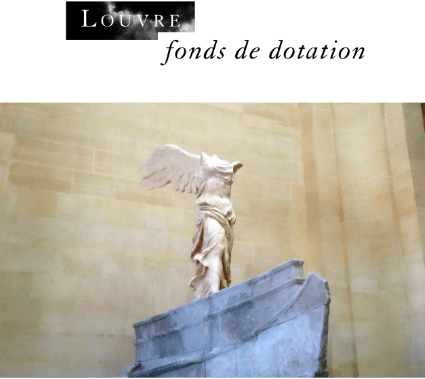Responsible investment
With its ESG-labelled investment processes, Chahine Capital integrates environmental, social and governance concerns at the heart of its approach. A voluntary and responsible commitment in line with the respect of future generations.
Chahine Capital’s management committee, composed of its CEO, CIO and Head of Risk and Compliance, defines the ESG policy.
It is implemented by the investment team and integrated into quantitative models in order to be applied to all “Digital Stars” portfolios. The Risk management team monitors on a daily basis the compliance of the funds with the responsible investment policy.
Norm-based exclusions
We exclude companies that manufacture or distribute anti-personnel mines from all of our portfolios according to the Ottawa Treaty (enforced in 1999).
We exclude companies that manufacture or distribute cluster munitions from all of our portfolios in accordance with the Convention on Cluster Munitions (enforced in 2010).
We exclude companies that do not comply with fundamental ethical standards (UN Global Compact), such as violation of individual rights, non-respect of human rights, major environmental damage, etc.
We exclude companies domiciled in controversial “Call to Action” jurisdictions (e.g. Iran and North Korea) identified by the Financial Action Task Force.
Sector exclusions
We have decided to exclude some sectors and practices from our entire fund range, and not to invest in companies facing one of the following cases:
Weapons sector
- The company is active in the production, sales and distribution of non-conventional weapons. It involves cluster bombs, anti-personnel mines, biological, chemical or depleted uranium weapons, as well as white phosphorus and nuclear weapons;
- Production, sale or distribution of conventional weapons (war material) represents more than 5% of revenues;
Energy sector
- The revenue from coal mining activities (thermal coal, metallurgical coal, coke) exceeds 10% of total turnover or its production exceeds 20 million tons per year;
- The coal-fired electricity generation represents more than 10% of turnover, or the generation capacity exceeds 10,000 MW;
- Production, sale or distribution of nuclear-based power generation exceeds 5% of turnover. This includes uranium extraction, uranium concentration, refining, conversion and enrichment, the production of nuclear fuel structures, construction and use of nuclear reactors. It also includes treatment of spent nuclear fuel, nuclear decommissioning and radioactive waste management ;
- If the sum of activities related to unconventional oil and gas, such as oil sands extraction, shale oil, shale gas and Artic drilling represents more than 5% of revenues.
Tobacco sector
- The production of traditional tobacco or related tobacco (such as e-cigarettes, new generation tobacco/nicotine products) exceeds 5% of sales;
- Tobacco sale or distribution represents more than 5% of total turnover.
Biodiversity
- The production of pesticides, palm oil or genetically modified organisms (GMOs) represents more than 5% of turnover.
Other sectors
– Income from activities related to:
- Gambling exceeds 5% of sales;
- Alcohol represents more than 20% of the turnover;
- Non-medicinal drugs exceeds 5% of the turnover;
- Adult entertainment (pornography) represents more than 5% of turnover.
ESG controversies monitoring and risk control
We have supplemented our existing daily-risk policy with criteria related to ESG reputational risks.
Indeed, business conduct risks related to human rights, labour, environment and corruption can result in risks to a company’s reputation and finances, and therefore in a risk for the end investor.
Chahine Capital has set up an SRI voting policy with ISS as a partner.
We therefore vote at all shareholders’ meetings of the companies held in the Digital Funds and apply by default the SRI voting recommendations provided by ISS research.
An ESG activity report is produced every quarter and contains:
- The list of excluded companies and the detailed reasons for their exclusion;
- The average RRI of each fund and each benchmark, for comparison. The RRI (RepRisk Index) is a quantitative measure that dynamically captures a company’s reputational risk related to ESG issues;
- The distribution of RepRisk ratings of each fund and each benchmark, for comparison.
This report is available below.
A report on the exercise of voting rights is produced every quarter as well.
This report is also available below.
This responsible investment policy is specific to four of our funds: Digital Stars Europe, Digital Stars Europe Ex-UK, Digital Stars Europe Smaller Companies and Digital Stars US Equities. A specific policy is applicable to our Digital Stars Eurozone fund. All these policies are available below.
The Management Company does not currently consider the adverse impacts of its investment decisions on ESG factors. The main reason is the lack of information and data available to adequately assess such principal adverse impacts considering that the regulatory technical standards of SFDR which will include the detailed principal adverse impacts disclosure requirements have not yet been adopted. Should this change, this will be disclosed on this website.
ENGAGEMENT POLICY
As a quantitative investor, access to data is crucial for Chahine Capital, particularly for our all-cap funds or our small cap fund. We therefore seek to improve the availability of ESG data, particularly for small and mid caps. For stocks not covered by Sustainalytics and RepRisk, Chahine Capital is approaching these data providers and the companies concerned to encourage them to provide the necessary information.
 |
A sustainable commitment
Chahine Capital is a UN PRI signatory since 2019. Chahine Capital is committed to all of its principles. |
DIGITAL FUNDS
Four of our funds have the LuxFLAG label (1)
(1)
OUR CSR POLICY
In order to strengthen its commitment to social and environmental issues, Chahine Capital is progressively extending its CSR policy commitments.
Our publications
Responsible Investment policy Responsible investment policy – Eurozone Quarterly ESG report – Eurozone Holdings – Digital Stars Eurozone Quarterly report on the exercise of voting rights – Digital Stars Eurozone Quarterly ESG report – Digital Stars Europe Quarterly ESG report – Digital Stars Europe Ex-UK Quarterly ESG report – Digital Stars Europe Smaller Companies Quarterly ESG report – Digital Stars US Equities Quarterly report on the exercise of voting rights Engagement policyPhilanthropy
Going forward to give substance to our convictions
As part of our social and solidarity-based philanthropy approach, Chahine Capital has chosen to support two non-profit organisations whose actions in favour of disadvantaged people are recognised and serve general interest. The Simplon Foundation and the Louvre Museum Endowment Fund.
 Find out more
Find out more
The Musée du Louvre Endowment Fund
Created in 2009, this endowment fund aims to provide long-term support for the Louvre’s public-interest missions: to promote access to culture, to ensure the restoration, study, and enrichment of national collections, to fight against exclusion, and to implement educational initiatives.
We are contributing to this fund, which aims at bringing the Musée du Louvre closer to people who are geographically or socially distant from culture.
 Find out more
Find out more
The Simplon Foundation Endowment Fund
Created in 2019, the Simplon Foundation Endowment Fund promotes digital solidarity, inclusiveness and eco-responsibility in the service of mankind and nature, with a non-profit and general interest goal. It aims to strengthen the positive impacts of digital technologies, useful to people and virtuous for the environment, in France and internationally.
Among these different programs, we support in particular two initiatives related to digital technology that are in line with the DNA of Chahine Capital:
The “Education of women in technical digital jobs” project.
- Currently, only 15% of women hold positions in technical jobs. The objective of this project is to work towards the feminization by educating women who are far from employment.
The “Emergency Scholarship Solidarity Fund”.
- Its aim is to help, on a one-off basis, learners in extremely precarious situations in order to allow them to continue their learning.
Investors must not rely on LuxFLAG or the LuxFLAG Label with regard to investor protection issues and LuxFLAG cannot incur any liability related to financial performance or default.
The LuxFLAG ESG label for the Digital Stars Europe, Digital Stars Europe Ex-UK, Digital Stars Europe Smaller Companies and Digital Stars US Equities fund is valid until 31 December 2022.

